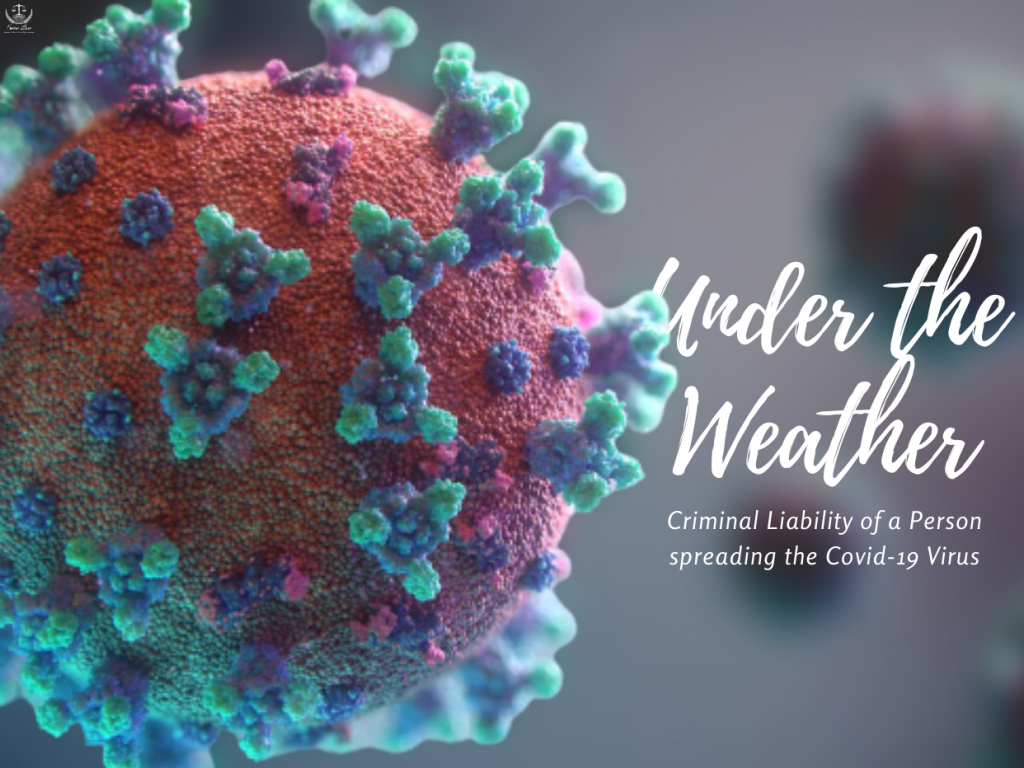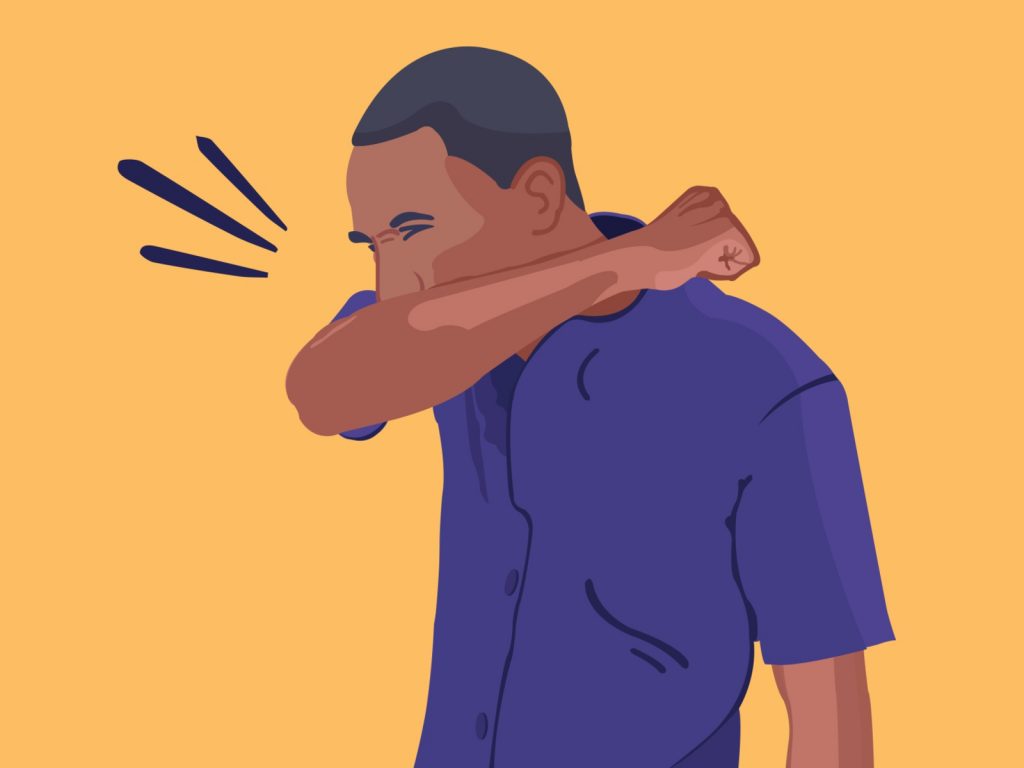
In the COVID-19 pandemic, many people are wondering about the complications that the coronavirus has on criminal liability. For instance, could a person be held criminally liable if they negligently infect the other person? What could happen if the infected person dies or suffers from grave injuries or disabilities due to COVID-19? Can those who have COVID-19 be held legally responsible for making others sick?
There are some examples in Canada where those with specific diseases were held criminally and legally responsible for making others sick. HIV, for example, must be revealed to a potential partner before a sexual encounter if the person has a “realistic possibility of transmission.” If a person who is HIV-positive does not reveal this before, engaging in behavior that could spread the disease, they could be sued for doing so.
Though, when it comes to criminal accountability and COVID-19, because of how new the virus is, no authorized criminal rules or judgments exist per se. People who test positive are fortified to self-isolate and to quarantine themselves to avoid spreading the virus, and to pursue medical help if required, but there is no specific law contrary to spreading COVID-19.
Is negligent spreading of Covid-19 Virus, a crime?
All diseases are spread because of unawareness, and educating people is the solution for stopping the spread. People should stay at home and stay prepared to fight this disease. But, this disease is spreading because they are either ignorant or careless. The carelessness if exacerbates becomes ‘recklessness’ which could be criminal. Can the government punish them? Let’s find out.
Covid-19 in India and Criminal Liabilities
India, with a population of 135 Crore people and an area of 3.287 million kilometers, is the second most populated nation in the world and has taken firm measures to restraint the spread of coronavirus. It is a matter of fact and evidence from the data presented that nations with low populations are broadcasting such a huge surge of COVID-19 cases. With such a vast density of population, as imitated above, a strong approach to control the tragedy will be required, which would occur on residents if emergent measures are not taken by the government. Perhaps, it is because of this that several states imposed curfews in their respective dominion which was followed by a nationwide “Janata Curfew” imposed by the Government of India. It is a big obstacle for India with such an enormous population to limit the spread of the virus.
Having its first informed case in Kerala and insight into the rising number of cases in other portions of the country, the Government of India executed the nationwide lockdown for a period of 21 days. The lockdown, for a layman, would give the impression to be shutting off all the processes and keeping social distancing. Nevertheless, the term lockdown owes its source to the National Disaster Management Act, 2005 which was invoked by the Government of India. Likewise, provisions of the Epidemic Disease Act, 1897 were invoked by several State Governments, and pertinent rules were brought into force. The lockdown instructed people to sustain social or physical distancing, limiting the movement of people from one place to another.
The announcement imposing lockdown contained measures/guidelines, which were supposed to be followed by every person. Subsequently, all the shops as well as educational and other institutions, shopping malls, restaurants, cafes, and workplaces, were shut and both administrative and intra-state transportation was postponed. It is vital to know what lies under the Act of 2005 and the National Disaster Management Act of 1897 and what would be the result of the application of both the acts in the present scenario, keeping in view the fact that lockdown was obligatory under the said acts.
The Act of 2005
Under the Act of 2005, the term ‘Disaster’ means a calamity or severe occurrence in any area, rising from the natural or man-made cause, or by accident or carelessness, resulting in extensive loss of life or human suffering or damage to property or environment. The acts comprise the penal provisions for its violation and the violators will be appealing jail terms under the Act of 2005. Chapter 10 of the Act of 2005 prescribed offenses and consequences which are fundamentally discussed from Sections 51-58 of the act which are discussed hereinbelow:
- Section 51 states that whoever without any rational cause inhibits or declines to obey with the employee of Centre/State government or National/State/District Authority, shall be penalized with imprisonment which may extend to a year, or fine, or both. If the ignorance of law results in the loss of life or forthcoming danger to someone then the imprisonment will extend to two years.
- Section 52 states that whosoever meaningfully makes a claim believing it to be false for procurement of a benefit, from the officers of the Central/State government or National/State/District Authority, shall be penalized with imprisonment which may extend to two years along with fine.
- Section 53 states that whoever is delegated with money or goods, meant for providing relief in any intimidating disaster situation or disaster, uses for his benefit or coerce any other person to do so, shall be penalized with imprisonment, which may extend for two years with fine.
- Section 54 states that whosoever makes or circulates false alarm or cautionary as to disaster, leading to fear, shall be condemned with imprisonment for a term which may extend to one year and fine also.
- Section 55 subsection (i) states that if any department of the government commits an offense under this Act, the Head of the Department shall be considered guilty of an offense and shall be penalized accordingly unless declared innocent. Additionally, as per sub-clause (ii), if any Department of Government commits an offense under this Act and it is proved that the offense has taken place under his supervision, other than the Head of the Department, the officer will be punished accordingly.
- Section 56 states that any officer, under this Act who refuses to execute his duty imposed on him, without the written letter to a superior officer or lawful excuse, shall be punished with imprisonment which may extend up to one year with a fine.
- Section 57 states that if a person breaks any rule or order under Section 65, shall be punished with imprisonment which may extend to one year or fine, or both.
- Section 58 subsection (i) states that if an offense under this Act is committed by a company or by a corporate body, every person who at the time of the offense was committed, was in charge or responsible for the company, shall be punished accordingly, unless proven innocent. Moreover, as per sub-section (ii) if an offense under this Act is committed by the company, and it is proved that the offense was committed with the consent of any director, manager, secretary, or any other officer, will be penalized accordingly.
Epidemic Disease Act, 1897

The Epidemic Disease Act of 1897 is century-old legislation that was enacted to provide for the prevention of the spread of hazardous epidemic diseases. The Act gives power to both, the central as well as the state government to take such measures when it is satisfied that, any part of it is unprotected to an outbreak of an epidemic or endangered, and the ordinary requirements of laws are inadequate. In this scenario, the government can take action and recommend rules for inspection of any person contravening the laws enacted under this Act. It further lays down that, in case any Orders passed under this Act are violated, then the violator shall be considered to have committed an offense punishable under Section 188 of the Indian Penal Code, 1860.
Section 188 recommends punishment with simple imprisonment for a term that may extend to one month or a fine that may extend to Rs.200 or both. Moreover, if such non-compliance causes a threat to human life, safety, or causes a disturbance, he/she shall be punished with imprisonment of either kind for a term which may extend to six months, or with a fine which may be up to one thousand rupees, or with both. Furthermore, section 269 of the IPC recommends punishment for neglectful actions which may spread infection of any disease, thereby intimidating human life, which is punishable with imprisonment which may extend to six months or fine or both. Section 270 is a graver offense than the one prescribed under Section 269. It executes punishment for malicious actions which may spread any disease treacherous to live. The punishment under this section may be up to two years imprisonment and/or a fine.
Conclusion and Suggestions
As a concluding statement, it is recommended that in the present situation the violation of rules would not only fascinate serious penal consequences but would also carry the grave potential to jeopardize the society at large since the virus is transmissible and as the study suggests, it takes a good amount of time before the indications occur in a human being. In the current situation, falling trap to legal action would make condition extremely difficult for the violators and their dependents, keeping in sight the fact that once the lockdown is called off, the country will be facing a great economic challenge and consequently, while people do require speedy support of the Government and its administration for satisfying their basic requirements, one should be cautious before doing any such act which could violate the existing laws.
Editor’s Note
The article lays down the criminal liability that a person might face if they indulge in any activity that helps in the spread of Covid-19. It elaborates on the different legislations that were bought into action during other epidemics. The provisions of the IPC, Epidemic Diseases Act, National Disaster Management Act are also laid down in detail to substantiate the arguments put forward by the author.